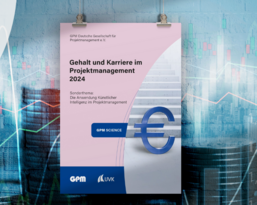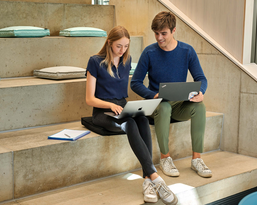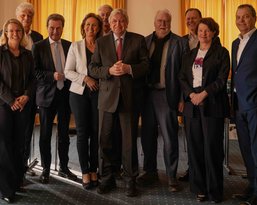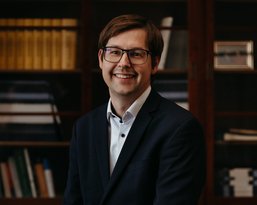
Students from Germany and Uganda support refugees with water filters
Students from EBS Universität (EBS), in cooperation with students from Makarere University in Kampala, Uganda, have successfully transported a portable water filtration system (PAUL) to Namungoonan.

Aisha Ali and her team from the I-Profile Foundation in Uganda, which mainly cares for Somali refugees, know the problem only too well: many poor people in the Namungoona district of the Ugandan capital Kampala, especially children and young people, fall ill because they have to use unclean water. While the wealthy part of the population resorts to plastic bottles, the poorer part is dependent on public water sources and thus exposed to the risk of bacterial infections. Well-functioning water filters can provide a remedy. However, there is the problem of the cartridges, which often have to be replaced after only a few months. To solve this problem, Prof. Frechen from Kassel has developed the PAUL system. PAUL can filter up to 2,000 litres of water daily and shows hardly any signs of wear even after ten years of use. There are now over 3,000 PAUL stations worldwide, primarily in Asia, Africa and South and Latin America.
As part of the Service Learning programme at EBS, students from EBS Business School cooperate with students from Makarere University in Kampala to improve the situation of local residents. The programme connects students, initiatives and teachers to respond to social needs and problems through joint activities. Academic content is linked with practical issues to promote the common good. To this end, three teams were formed last semester, each with six students from both universities, who worked on the topics of water, education and biodiversity, each supporting an aid organisation in Uganda.
For the EBS students, managing the transport and installation of PAUL with the team from Uganda was challenging. Despite a common will, the expectations on both sides were very different due to cultural differences. Jennifer Pentland from the EBS team concludes that "one should not make hasty judgments when working in an international team - not everyone communicates in the same way or shares the same values". The students found it much easier to establish personal contacts with their peers in Uganda, which they would like to maintain.
It is precisely these continued encounters at eye level between the North and the South that the initiators of the programme want to achieve. "Our aim is to build many small bridges," says Dr Marcus Kreikebaum from EBS Business School, and Dr Proscovia Katumba from Makarere University in Kampala adds: "We want our students to develop more understanding for foreign but also their own cultural values and ideas. At the same time, we want them to realise that we can only achieve the global development goals together."








